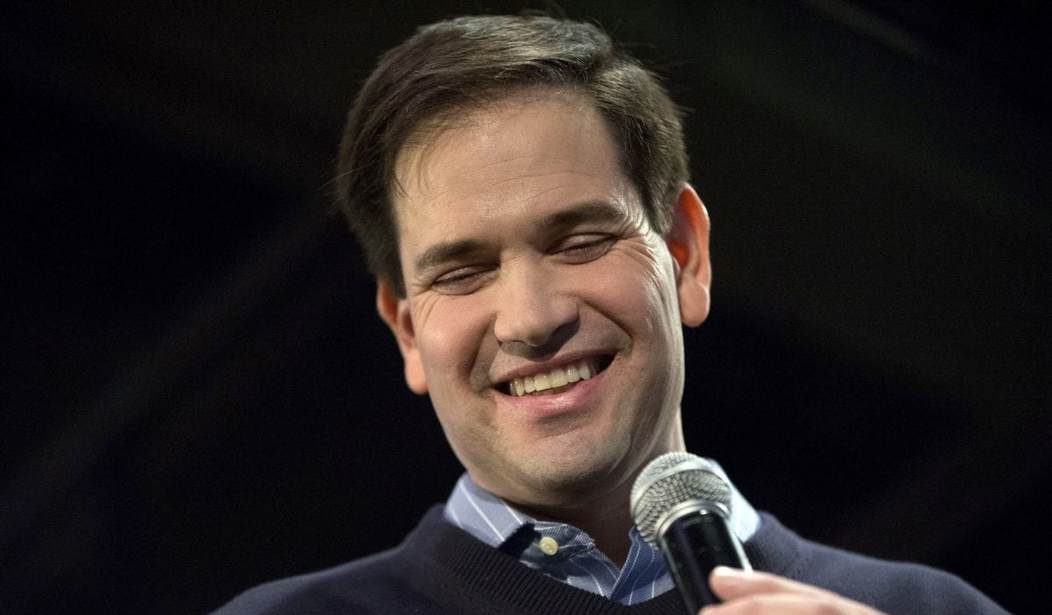With just four days to go before the Iowa caucuses and no indication that support for Donald Trump or Ted Cruz is flagging, mainstream Republicans are down to their last bullet to use against the outsiders: the notion that both Trump and Cruz are unelectable.
This raises an interesting question. Are Trump/Cruz supporters so dumb they can’t see a disaster in the making in November if their candidate wins the nomination? Or is it that they don’t care?
In fact, it’s neither. Supporters for both candidates have full confidence that their man can carry the day in the general election against Hillary Clinton or Bernie Sanders. An ABC poll out today reveals the expectations of voters for November:
Differences among partisans help explain the results in this poll, produced for ABC by Langer Research Associates. Democrats and Democratic-leaning independents are especially confident in a Clinton victory; 78 to 85 percent view her as the likely victor (including 89 to 94 percent of her own primary supporters). Leaned Democrats are less confident in Sanders; that’s particularly true of Clinton supporters.
Leaned Republicans are about as confident that Trump would beat Clinton (75 percent) as are leaned Democrats that Clinton would beat Trump (78 percent). But leaned Republicans are far less certain about either Cruz or Rubio beating Clinton – 63 and 61 percent, respectively, expect it. That fits with ABC/Post poll results, reported Tuesday, showing that Trump is viewed within his party as its most electable nominee.
Electability is, indeed, important to GOP voters. But are they right to have such confidence in their candidate prevailing in the general election?
David Wasserman doesn’t think so. In fact, he thinks Marco Rubio is the only hope for the GOP to win the general election:
There are a lot of complex analyses of the 2016 election floating around. My own theory is quite straightforward: If Hillary Clinton is the nominee — and she remains a heavy favorite over Bernie Sanders — her fate largely rests with Republican voters’ decisions over the next few months.
If Republicans nominate Rubio, they would have an excellent chance to beat Clinton by broadening their party’s appeal with moderates, millennials and Latinos. The GOP would also have an excellent chance to keep the Senate, hold onto a wide margin in the House and enjoy more control of federal government than they have in over a decade.
If they nominate Ted Cruz, Clinton would probably win, the GOP Senate majority would also be in peril and GOP House losses could climb well into the double digits. A Donald Trump nomination would not only make Clinton’s election very likely and raise the odds of a Democratic Senate; it could force down-ballot Republicans to repudiate Trump to survive, increase pressure on a center-right candidate to mount an independent bid and split the GOP asunder.
In other words, if you’re a member of the Republican Party who wants to win in November, it’s basically Rubio or bust. The “Rubio or bust” theory relies on a process of elimination rather than an assessment of his biography, skills or ground game.
My problem with analyses like this — and we are likely to get a lot more after Iowa and New Hampshire — is that they are “traditional” in the sense that they are based on political realities as the game has unfolded over the last several decades.
Perhaps the impact of Donald Trump is being vastly overstated, but there is a possibility that Trump turns that “traditional” analysis on its head. There is a possibility — not at all certain — that Trump can blow up the red-blue paradigm and change politics in ways we can only dimly imagine.
The “traditional” view is that there are only a dozen or so states that are realistically in play for both parties. But Trump’s crossover appeal in states currently considered blue might allow him to be far more competitive for those electoral votes than any recent Republican nominee.
On the other hand, Trump may be so poisonous in some red states that the GOP is threatened with an unexpected loss.
Rubio’s “electability” is based on projecting attributes on to the race that have yet to materialize, i.e. Hispanics and young people voting for him in far greater numbers than they voted for Romney. The reality is that Trump is easily as electable as Rubio, at least according to current polls.










Join the conversation as a VIP Member